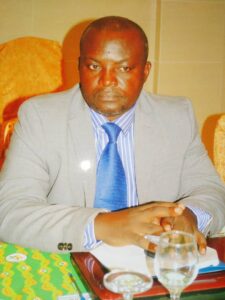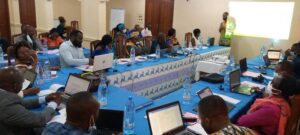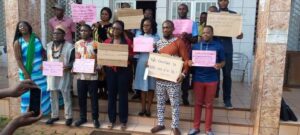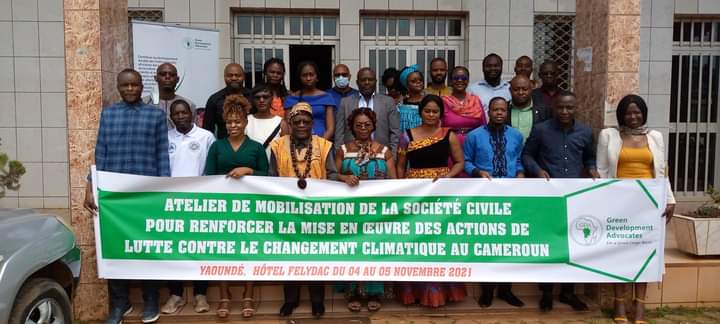Civil society Organisations in Cameroon have called on the government of the country to harmonize development policies with climate change policies in order to obtain sustainable results in the fight against climate change.
The position of the civil society organisations is contained in a final communiqué issued at the end of a two day workshop organized in Yaounde by Green Development Advocate (GDA), an organization specialized in fighting climate change and it’s effects on vulnerable populations.
“The Nationally Determined Contributions (NDC) should really represent both climate and development policies.”
The civil society organizations for two days made some key observations about the present climate crisis in the country before tasking the government, other civil society organizations nationally and internationally with recommendations.
One of the key recommendations concerned the recently revised Nationally Determined Contributions (NDCs) believed by the experts to still have some lapses.
“Actually the new NDC is Cameroon specific, and the context is also specific but the challenge we have is to actually attain the prescribed mechanisms of 35% reduction of carbon emissions. Within this 35% reduction, we have 23% which is compulsory and 12% which is unconditional……. The challenges for example are in terms of expertise. Actually climate change is an ongoing process but within the thematics, there are very few experts who can work accordingly.” Prof. Frambo Martin said.

Prof. Frambo Martin is a senior lecturer of universities, and coordinator of the COFEAD Consortium.
The experts noted that all those directly implicated with climate change issues are not usually involved in drafting strategies. Reference was made to the civil society, indigenous populations, women, youths, the disabled and even the media, which are all at the centre of climate issues but are not properly consulted and integrated in the various processes ranging from the elaboration and implementation of climate policies, and preparations for the various climate change summits (COPs).

Civil society organizations were equally tasked to reawaken the climate change spirit among their activities and lay emphasis on mitigation and adaptation.
At the global level, the experts noted that it is neccesary to reinforce sub regional and regional collaboration between civil society actors and other organisations.
One big challenges that was observed was finances. The CSOs enjoined the government of Cameroon to get actively involved more than ever in seeking green funding.

The big nation polluters were not left out as senior lecturer of universities and Global Coordinator of COFEAD Consortium, Prof Frambo Martin explains;
“As a fact, the position as of today from the previous COPs, that is the Conference of Parties, is that the more you pollute, the more you pay. So actually like an African country, we are expecting that much funding will be attracted with respect to the terms of pollution and the changes of climate.” He said.
The Cameroonian delegation attending the COP26 summit in Glasgow is this expected to open new doors for climate funding in the country, especially mitigation and adaptations.








